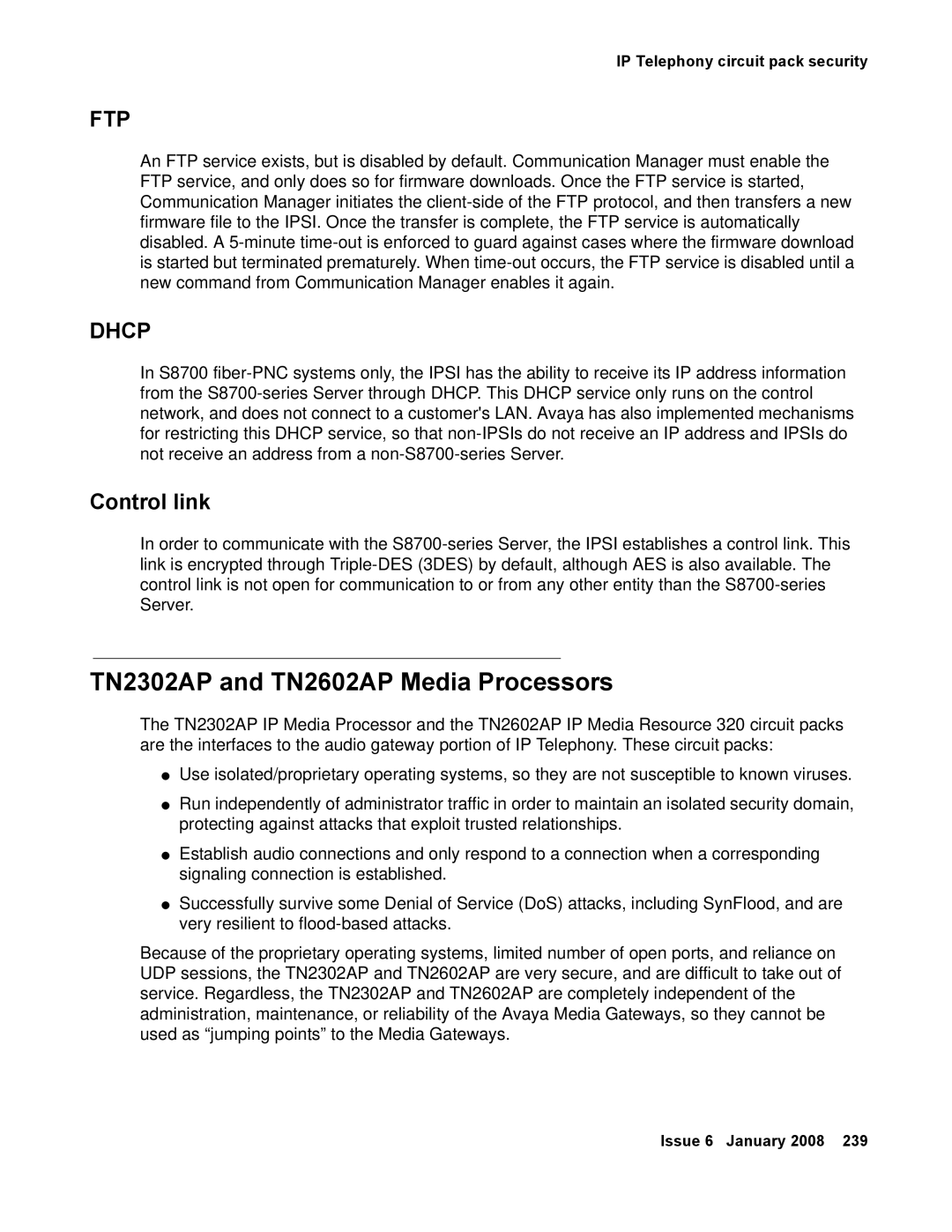IP Telephony circuit pack security
FTP
An FTP service exists, but is disabled by default. Communication Manager must enable the FTP service, and only does so for firmware downloads. Once the FTP service is started, Communication Manager initiates the
DHCP
In S8700
Control link
In order to communicate with the
TN2302AP and TN2602AP Media Processors
The TN2302AP IP Media Processor and the TN2602AP IP Media Resource 320 circuit packs are the interfaces to the audio gateway portion of IP Telephony. These circuit packs:
●Use isolated/proprietary operating systems, so they are not susceptible to known viruses.
●Run independently of administrator traffic in order to maintain an isolated security domain, protecting against attacks that exploit trusted relationships.
●Establish audio connections and only respond to a connection when a corresponding signaling connection is established.
●Successfully survive some Denial of Service (DoS) attacks, including SynFlood, and are very resilient to
Because of the proprietary operating systems, limited number of open ports, and reliance on UDP sessions, the TN2302AP and TN2602AP are very secure, and are difficult to take out of service. Regardless, the TN2302AP and TN2602AP are completely independent of the administration, maintenance, or reliability of the Avaya Media Gateways, so they cannot be used as “jumping points” to the Media Gateways.
Issue 6 January 2008 239
